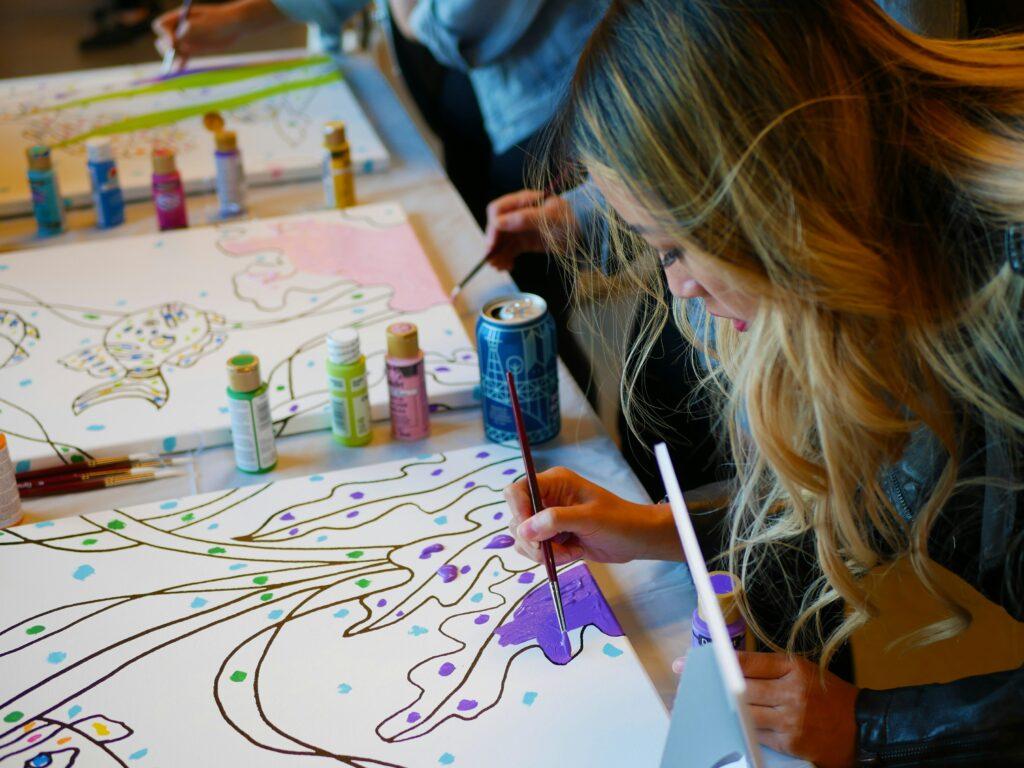The High-Achiever’s Guide To Finding (And Sticking With) A Hobby You Love

While building a career and managing a busy life, personal interests often get relegated to the “someday, maybe” list. In a world where self-care is often packaged as expensive routines or trendy supplements, as writer Sisi Mello observes on Substack, the humble hobby doesn’t always get the credit it deserves. You’re often told to optimize, to monetize, to professionalize every corner of your life. But what if that thinking is backward? What if pursuing a hobby isn’t just a pleasant thing to do, but a crucial component of a sustainable, creative, and ultimately, a more fulfilled life?
Experts and research increasingly confirm that hobbies are powerful tools, not just time fillers. Editor Heidi Godman from Harvard Health Publishing highlights a large-scale study published in Nature Medicine involving over 93,000 older adults across 16 countries. This research found that, compared to those without hobbies, individuals who engaged in activities like arts and crafts, gardening, volunteering, or clubs reported better health, more happiness, fewer symptoms of depression, and higher life satisfaction. While observational, the study found an undeniable link between hobbies and well-being across different cultures and backgrounds.

We intuitively know hobbies can help us relax, but the benefits are often deeper and more measurable than simple downtime. They are prime ground for experiencing what renowned psychologist Mihaly Csikszentmihalyi called “flow,” which is defined as that state of complete absorption in an activity where time seems to disappear, focus sharpens effortlessly, and the activity itself is the primary reward.
Mihaly’s work highlights that these “optimal experiences,” common when a hobby challenges us appropriately (not too little, not too much), are fundamental to deep happiness and intrinsic motivation. Studies suggest that learning entirely new skills (like picking up a musical instrument, learning a new language, or mastering chess) or engaging in creative activities promotes neuroplasticity: the brain’s incredible ability to form new connections and pathways. This can enhance cognitive flexibility, improve problem-solving skills, and boost memory.
Finding Your Fit: Identifying A Hobby That Truly Clicks
The key isn’t to pick the “best” hobby or the one that looks most impressive, but to find something that genuinely resonates with you.
- Consider Your Personality And Needs: An introvert might find peace and fulfillment with activities like reading, coding, solo crafting, writing, or gardening. An extrovert, on the other hand, might be energized by team sports, group fitness classes, community theater, volunteering, or joining a choir or book club. Consider if you lean more analytical and strategic (strategy games, puzzles, building things) or creative and expressive (visual arts, music, writing, dancing).
- Make A “Joy List”: In her Substack article, Sisi suggests listing small things that make you feel calm, happy, or energized, moments where you “lose track of time in the best way,” as Sisi puts it. Your next fulfilling hobby might be hiding in plain sight on that list. Whether it’s reading in the sun, tinkering with gadgets, playing casual pickup games, or simply rearranging your living space, Sisi advises consciously sprinkling these joyful moments into your week. Paying attention to these small pockets of happiness can reveal deeper interests.
- Past Interests And Current Curiosities: Sometimes, the seeds of your next great hobby were planted long ago. What did you do simply because it brought you joy before work, and responsibility took over? I have always enjoyed reading fanfictions about my favorite characters, and now my common hobbies include books. But also, what are you curious about now? What topics do you find yourself reading about in your spare moments, watching documentaries on, or browsing online? Let genuine intrigue and curiosity be your guide, rather than feeling pressured to pick something productive.

Making It Stick: 5 Ways To Integrate Hobbies Into Your Routine
- Embrace Beginner Status: Grant yourself explicit permission to be new, awkward, clumsy, and make mistakes. Unlike your job, where expertise is expected, hobbies are spaces for learning and growth, not instant mastery. As someone who struggles to overcome perfectionism, seeing mistakes not as failures but as essential learning opportunities is crucial here. So, try a single drop-in class, borrow equipment from a friend, or start with a free online tutorial before investing heavily in gear or long-term commitments. Minimize the internal pressure.
- Focus On Effort, Not Outcome: Adopt a growth mindset, a concept powerfully popularized by psychologist Carol Dweck. When you engage in your hobby, consciously praise your effort in showing up, practicing, and trying new things, rather than critiquing the imperfect result. Hobbies are excellent, low-stakes practice grounds for cultivating this valuable and transferable mindset shift.
- Start Small And Build Momentum: Don’t tell yourself you need to become a master painter, a concert pianist, or a marathon runner overnight. That’s a recipe for overwhelm and quitting. Commit to small, manageable steps that feel achievable with your current schedule and energy levels. Small wins build confidence and momentum.
- Schedule It Like A Client Meeting: If it’s not in the calendar, it’s less likely to happen. Treat your hobby time with the same respect and commitment as a non-negotiable work appointment or a doctor’s visit. Block out specific time slots in your digital or physical calendar, even if they are just short sessions (30-60 minutes).
- Habit Stack For Seamless Integration: Link your new hobby to an existing, solid routine you already follow. For example, practice your instrument for 15 minutes immediately after you finish dinner, listen to an educational podcast related to your hobby during your commute, or work on your creative writing project for 10 minutes immediately after you finish your morning coffee.






